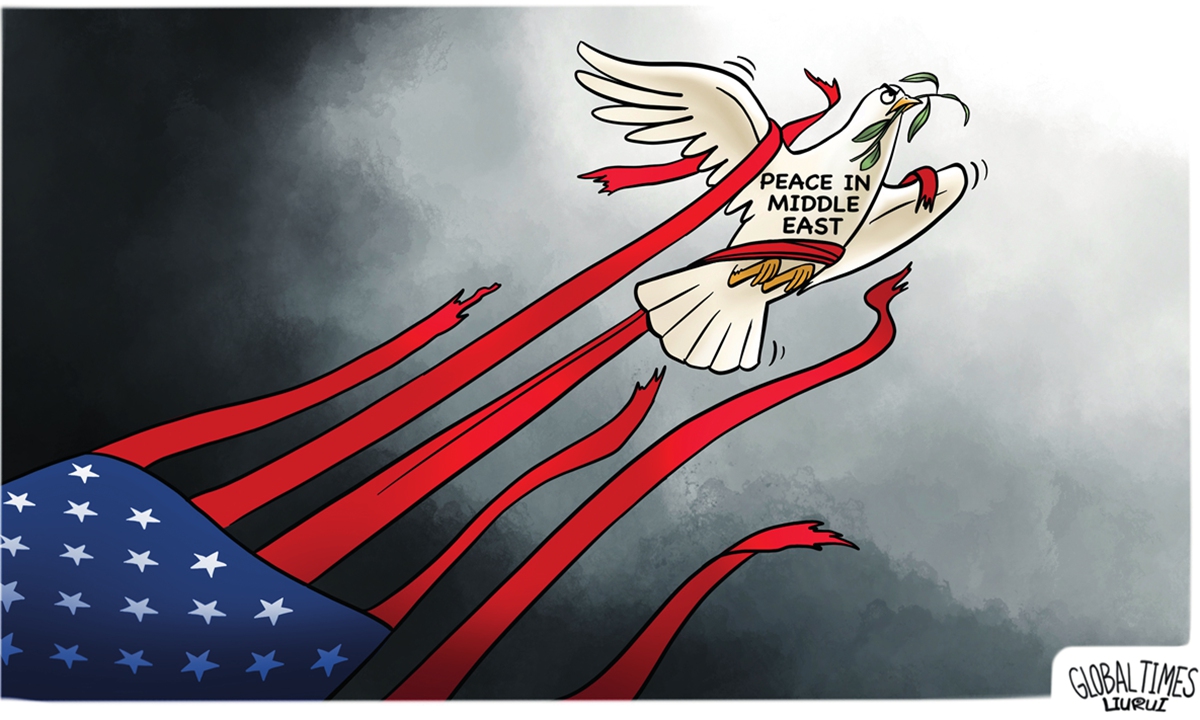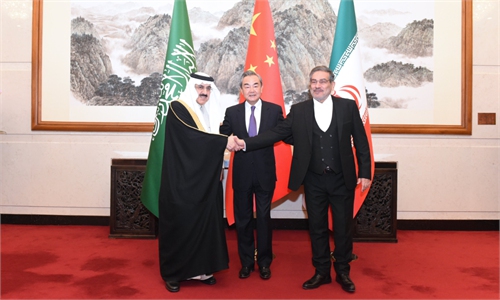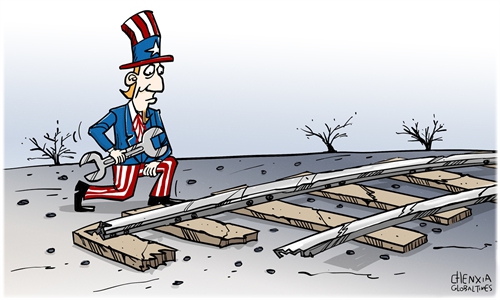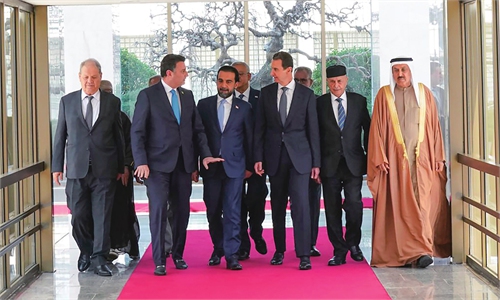
Illustration: Liu Rui/GT
What's the point of the US to build the second-largest embassy worldwide in such a small country as Lebanon? It is a strong signal to show that the US is in the Middle East to stay, through an exaggeratedly huge new command center, especially at a time when burgeoning detente and peace process are unfolding in the region, healing the wounds caused by Washington."A massive new US embassy complex in a tiny Middle East nation is raising eyebrows," CNN reported on Saturday. "The US' new compound in Lebanon looks like a city of its own. Sprawling over a 43-acre site, the complex in the Beirut suburb of Awkar is almost two-and-a-half times the size of the land the White House sits on and more than 21 soccer fields," the article said.
It became a news story because a small country like Lebanon clearly does not need such a large embassy or a large number of diplomats. "It is likely that a significant proportion of the embassy staff will consist of intelligence and military personnel. In other words, the embassy's intelligence and military functions will far outweigh its diplomatic role," Ding Long, a professor at the Middle East Studies Institute of Shanghai International Studies University, told the Global Times.
The US does not care that Lebanon's economy has been in turmoil since 2019 or that nearly 80 percent of the Lebanese live in poverty. But it does care about Lebanon's geographical position - bordering Syria to the north and east and Israel to the south. Experts believe that, as a traditional geopolitical center of the Middle East and the frontline of the Arab-Israeli conflict, Lebanon is viewed by the US as a frontier stronghold to contain Hezbollah and Iran. At the same time, Washington can also closely monitor Russia's military presence in Syria.
Upon completion, the US will be able to not only collect significant amount of military intelligence from the Middle East via the new embassy, but also take it as a crucial base for US special operations forces, Song Zhongping, a Chinese military expert and TV commentator, told the Global Times, noting that these will help orchestrate color revolutions in Middle Eastern countries to overthrow anti-US regimes and foster pro-US opposition forces. "Rather than defining it as an embassy, it is more of a US headquarters," he said.
Plans for the embassy complex were announced in 2015. The project apparently has not been affected by the US' withdrawal from the Middle East. The US' obsession and stubborn intention to interfere in regional affairs and maintain its hegemony in the Middle East has never dimmed.
According to Ding, Washington is only decreasing its direct military involvement in the Middle East; it does not mean that the US is reducing its ambitions for hegemony there. The fact is the US is enhancing its diplomatic, intelligence, and other soft power means in the region. However, the US can hardly reach what it wishes.
One significant cause is that the US' Middle East policy is too self-serving and severely detached from reality. Take Lebanon, it needs development and stable neighboring environment to tackle its challenges as many people there are unable to afford basic commodities, including food, medicine and electricity, rather than a Big Mac US embassy, which is widely believed to be full of ill intentions and will create more regional chaos.
As a result, "Middle Eastern countries' trust in the US is declining, while their strategic autonomy is rising. They begin to pursue diversification of allies and partners and implement a strategy of striking balance among major powers," Ding said.
Meanwhile, when talking about the massive US embassy compound in Lebanon, a question can hardly be ignored - where is the money coming from, when the US has been facing debt ceiling crisis over and over again in the past years? It's the money from American taxpayers, it's also the money for tomorrow, which US borrowed from other countries.
Yet the US couldn't care less about it. It is accustomed to spending future money for today. And it will print more money, escalate inflation, economic and currency crises, and spill them over to other countries, Song said.
Unfortunately, this is not the way to save US hegemony anymore, nor could it stir up more troubles in the Middle East or any parts of the world.
What the Middle East needs from the US is turning American embassies to their normal function - carrying out genuine diplomacy and facilitate communication, rather than being strongholds for color revolutions or a headquarters for armed militants under the guise of "embassies," which, in the past, merely played the role as malignant tumor in the region, bringing disastrous consequences to the innocent local people.



